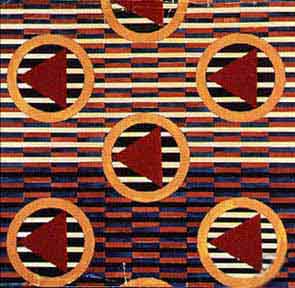 Constructivism
was an art movement that conjoined artists and their art with machine
production and architecture. The artists did not believe in abstract
ideas, rather they tried to link art with concrete and tangible ideas.
They wanted to renew the idea that the apex of artwork does not revolve
around "fine art", but rather emphasized that the most priceless artwork
can often be discovered in the nuances of "practical art". Their basic
aim was to capture the image of their day through portraying man and
mechanization into one aesthetic program. Constructivism took place
in Russia. The artists mainly consisted of young Russians trying to
engage the full ideas of modern art on their own terms. They depicted
art that was mostly three dimensional, and they also often portrayed
art that could be connected to their Proletarian beliefs. Some of the
artists heavily involved in this movement include Eliezer Lissitzky,
Vladimir Tatlin, and Alexander Rodchencko. Most of their images contain
pictorials of construction, machinery, and men at work. To them, the
creative artist went along side of every day man, to complete a portrayal
of people and a way of life.
Constructivism
was an art movement that conjoined artists and their art with machine
production and architecture. The artists did not believe in abstract
ideas, rather they tried to link art with concrete and tangible ideas.
They wanted to renew the idea that the apex of artwork does not revolve
around "fine art", but rather emphasized that the most priceless artwork
can often be discovered in the nuances of "practical art". Their basic
aim was to capture the image of their day through portraying man and
mechanization into one aesthetic program. Constructivism took place
in Russia. The artists mainly consisted of young Russians trying to
engage the full ideas of modern art on their own terms. They depicted
art that was mostly three dimensional, and they also often portrayed
art that could be connected to their Proletarian beliefs. Some of the
artists heavily involved in this movement include Eliezer Lissitzky,
Vladimir Tatlin, and Alexander Rodchencko. Most of their images contain
pictorials of construction, machinery, and men at work. To them, the
creative artist went along side of every day man, to complete a portrayal
of people and a way of life.